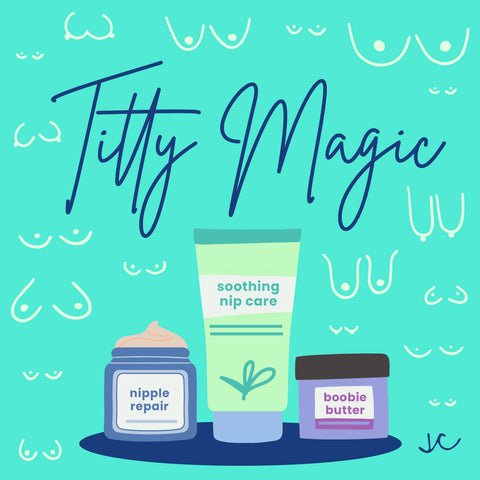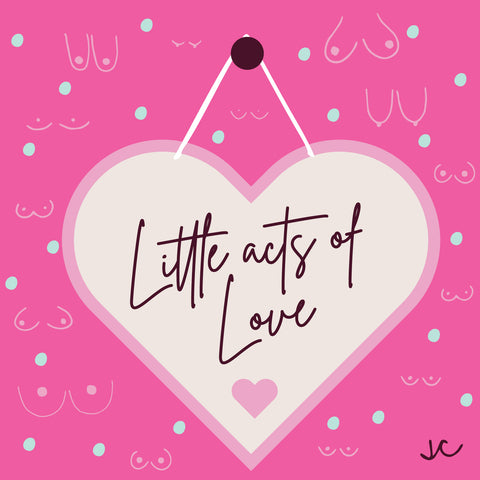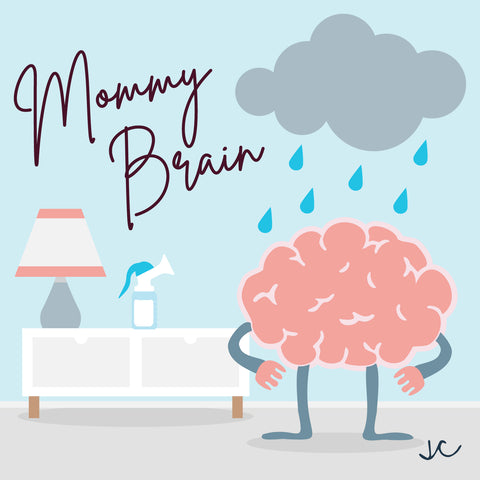Is My Baby Getting Enough Milk?

Estimated read time: 7 minutes
You know what?
One of the most common questions new breastfeeding mamas ask each other on late-night texts has to be, is my baby getting enough milk?!
Hands up if that sounds familiar?
Well, if you’re here, it’s most likely because you’re stressing over that question yourself. And it’s obvious why. Because you can’t see how much milk you’re producing (even a breast pump isn’t an accurate representation) it can be hard to know just how much milk your little one is getting.
But, don’t worry mama. In this article, we’ll help you understand how to tell if your baby is getting enough milk, so you can feel calm and confident.
We’ve got you.
How to tell if baby is getting enough milk
When you’re breastfeeding, one of the most common concerns is: is my baby getting enough milk? New mamas often worry about their milk supply. When a baby is bottle-fed, it’s easy to see just how much milk is consumed, but for Boobie babies, it’s a bit of a guessing game.
Although you can’t see and measure the amount of milk your little one is getting, there are ways to tell she’s getting as much as she needs.
Here are some things to look out for to make sure your baby is getting enough milk:
- Your baby is producing at least six wet diapers a day (after their fifth day of life)
- They’re feeding at least 8-12 times a day, when your baby is a newborn
- You can hear or see them swallowing
- Your little one appears satisfied and content after each feed and settles or sleeps well
- Your baby is thriving and gaining weight based on their chart
- Your Boobies feel softer and don’t seem as full as when you started the nursing session
What about their poop? I hear you ask.
Every baby is different, and every breastfed baby is different. After their first poop (meconium), their bowel movements change colors. First, there are the dark, tarry poops, followed by a greenish shade, then a loose, mustard-yellow poop with milk curds (these look like seeds) in it.
A poop rainbow, for sure! The kind that explodes out of the diaper and goes all up their back. We’ve all been there mama.
Your baby might have several poops a day, or once every few days. Breast milk is SUPER nutritious and easily digested, so there isn’t always a lot of waste.
How much breast milk is enough for a newborn?
Newborns are funny little things.
And cute and oh-so-squishable.
When you finally have your newborn baby in your arms, and they latch onto your Boobies for the first time, it can be the most magical thing in the world.
And also, the most concerning, as you find yourself wondering, how much breast milk is enough for a newborn?
Mama, we hear you.
The first thing you need to accept is letting your baby be your guide. Don’t listen to your friend Jane whose baby only fed once every four hours and that was enough. Or your aunt Linda who keeps telling you you’re feeding the baby too much.
Your newborn baby knows how much milk it wants and needs. And you should feed them as often as they want. When it comes to the number of feeds your baby needs a day – there is no maximum number.
When your baby is first born, they might want to be permanently attached to your Titties, or they might be super sleepy and you have to encourage them to feed.
Newborns are hungry for milk all the time because their tummies are teeny. And because it’s so small, it digests your milk very quickly, making them hungry and ready for more milk.
When you feed your baby this way, it’s called responsive feeding, and not only is it good for baby, but it also helps build up your milk supply. Responsive feeding will give your little one the nourishment and comfort she needs, and the more frequently she feeds, the more liquid gold your magical Boobies will make.
Now, sometimes your baby will want just a little feed (like how you might just fancy a snack instead of a full-blown meal), while other times they might want to suckle for – what seems like – hours on end.
Normally, by the end of the first week, your little one might pack in around 12 feeds in a 24-hour session. And although this can be exhausting, mama, it doesn’t last. Let your baby lead the way and eventually, she’ll settle into a pattern, leading to longer feeds less often.
It’s hard, but you’ve got this mama. Enjoy those milky snuggles while you can and keep on Boobin’.
How long should I breastfeed my baby each time?
Along with how long should you breastfeed for each side (we’ll get to that in a sec) one of the most searched for breastfeeding struggles is this one. How long should I breastfeed my baby each time I feed?
And, we get it. Babies don’t come with instruction manuals, right? Oh, how we wish they did.
But, mama, every baby, and every breastfeeding journey are different. And although there isn’t an exact science to it, there are some guidelines you can follow to feel calm and confident that you’re nursing enough to keep your little milk monster happy and satisfied.
The length of each breastfeeding session depends on a few factors, including your cutie’s age and your breast milk supply.
An older baby can typically drain your Boobies quicker than a newborn, so feeds for them will be shorter. And when you start weaning them onto solids, you might find that your baby doesn’t need as many nursing sessions.
A good latch will also help baby feed quicker, as will a fast flow. If you have a slower flow or a low milk supply, feeding sessions can take longer as your baby needs to spend more time filling up.
Let’s look at the different stages of age and how long they should feed for:
Newborn
Newborn babes should be breastfed at least every 2-3 hours and they will feed for up to 15 minutes on each side. This makes an average Boob session about 30 minutes and about 8-12 times a day. Feeding this often will fill up your baby’s teeny tummy and give your Titties the signals they need to make more milk.
Of course, when a baby is fresh outta the oven, they might want to comfort feed too, and then there is the exhausting cluster feeding period, in which case they might be permanently attached to your Boobies! Don’t worry if this is the case. It doesn’t last forever.
3-4 months
Now your baby has reached this age, feeding should feel a little more established, and you might even have some sort of routine or feeding pattern.
As your baby grows, you’ll notice feeding times can get shorter and the time between each session stretches out a little. If your baby is thriving, and they’ve established a good latch, they will most likely be quicker at emptying your breasts or getting as much milk as they need. Feeds at this age can sometimes be as quick as 5 to 10 minutes on each Boob.
6-9 months
Welcome to the wonderful world of weaning, where solid food and drinking from a cup start to become a part of your baby’s diet.
Now your little one has reached 6 months, you’ll probably notice they want to be on the move a bit. They’re curious about the world around them and become quickly distracted. This means your baby might want to spend less time nursing or have fewer feeding sessions during the day. What’s the catch? You might also discover they want to make up for it during the night.
You’ve got this mama!
Toddlers and beyond
Breastfeeding is still super beneficial for toddlers and young children, but by the time they reach this age, it shouldn’t be central to their diet.
If you’re feeding your toddler then you’re amazing mama! You will probably find they only feed occasionally and for a short period, however, they probably still want to nurse, especially when they need some extra comfort or extra snuggles.
Don’t forget about those all-important growth spurts. They can happen at any age but are most common around 2-3 weeks, 6 weeks, and 3 months. During this time, your baby will need more milk. Don’t be surprised if they want to be on you 24/7.
If you’re worried about running out of milk for them, then rest assured mama, your Boobies are magical things. They’ll respond to your demanding cutie’s needs and ramp up milk production to accommodate them.
You've got this Mama!
You are doing such an incredible job, Breastie, and we’re so proud of you. You're the Tits!
For some mamas, nursing comes naturally and easily, but for a huge amount of others, it’s a challenge that they work on every day. And every night!
Knowing how to tell if baby is getting enough milk is your first step in feeling calm and confident in your breastfeeding magic. And now you know more about it, you can relax and get pumped up about continuing your journey.
But if you ever feel like you need more support, or you’re concerned about your baby not getting enough milk, never be afraid to reach out for help from a lactation consultant or speak to your doctor. There are a ton of organizations available to give you the guidance and advice you need.
Got any breastfeeding tips you’d love to share with the Titty City communi-Titty? Head over to our Instagram page and leave a comment on the post.
At Titty City Design, we believe that every boobie is beautiful, and that should be celebrated. We are a female-owned and operated, small business here to spread self-love and body positivity with our line of products for the home. A portion of our proceeds goes to help support postpartum women and breast cancer patients.
Products that New Moms Love







